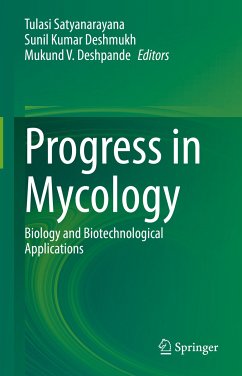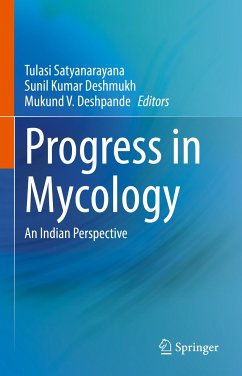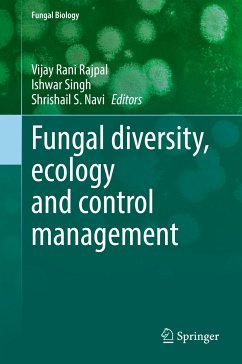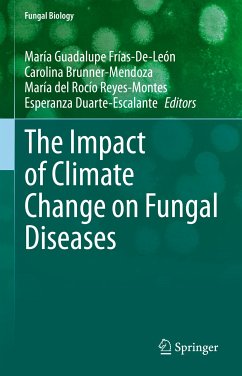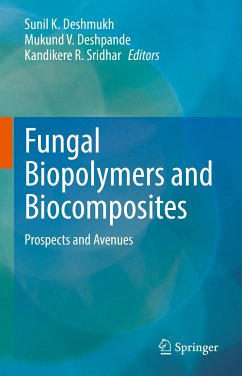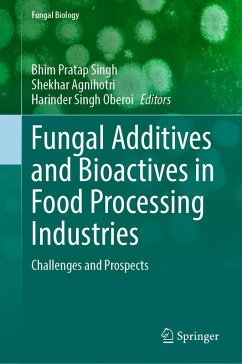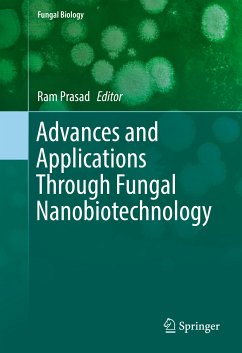
Fungal Resources for Sustainable Economy (eBook, PDF)
Current Status and Future Perspectives
Redaktion: Singh, Ishwar; Navi, Shrishail S.; Rajpal, Vijay Rani
Versandkostenfrei!
Sofort per Download lieferbar
184,95 €
inkl. MwSt.
Weitere Ausgaben:

PAYBACK Punkte
92 °P sammeln!
This edited book provides a comprehensive account of the new developments in various facets of fungal biology related to the impact and application of fungi on the sustainable economy. The book consists of 24 chapters distributed under five sections written by active researchers and academicians from India and abroad. The five sections of the book are- 1. Fungi in Sustainable Economy, 2. Fungal Resources: Current and Potential Industrial Applications, 3. Fungal Resources: Current and Potential Agricultural Applications, 4. Fungi and their Secondary metabolites: Implications and 5. Fungi: Burde...
This edited book provides a comprehensive account of the new developments in various facets of fungal biology related to the impact and application of fungi on the sustainable economy. The book consists of 24 chapters distributed under five sections written by active researchers and academicians from India and abroad. The five sections of the book are- 1. Fungi in Sustainable Economy, 2. Fungal Resources: Current and Potential Industrial Applications, 3. Fungal Resources: Current and Potential Agricultural Applications, 4. Fungi and their Secondary metabolites: Implications and 5. Fungi: Burden to health and Indoor Environment. The book explores the utility of fungi as food, enzymes, organic compounds, nutraceuticals, pharmaceuticals and agricultural productivity promoter. It also highlights the negative fungal impacts on food production, health and environment. The book is useful to postgraduate students studying mycology, plant pathology, crop protection, agricultural sciences, and plant sciences. In addition, scientists involved in biological and agricultural research, crop management, and various industries that manufacture or utilize fungal products on a small to large scale shall also find the book helpful.
Dieser Download kann aus rechtlichen Gründen nur mit Rechnungsadresse in A, B, BG, CY, CZ, D, DK, EW, E, FIN, F, GR, HR, H, IRL, I, LT, L, LR, M, NL, PL, P, R, S, SLO, SK ausgeliefert werden.



